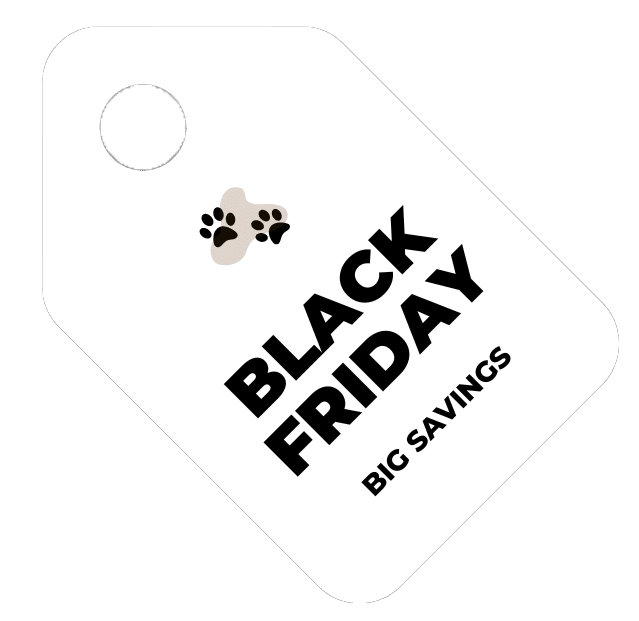Your hunting dog is more than an extension of your will; it’s your partner, carefully chosen to do some very strenuous work by your side. We’re talking tracking game, running, jumping, and swimming. While hunting dogs are bred for this level of extreme activity, it’s important to be aware of your dog’s health and any issues that might arise from these activities. Keeping an eye out for some common health problems and using a herbal supplement like Wapiti Labs’ Recuperate to support your canine’s health can help keep your hunting dog in peak physical condition, and ensure that you have a partner for years to come.
Common Health Issues
Hunting puts a lot of stress on a dog’s body, stress that ordinary dogs wouldn’t usually experience. Family and companion dogs can get injured while frolicking with their owners; hunting dogs may run into some more serious injuries while chasing down game in the wilderness. Here are some of the more common health problems that may befall your hunting dog. With the right knowledge, it’s possible to mitigate, and in some cases even avoid these conditions.
Tissue Damage
Your dog could be the most nimble hunting companion in the world, but a sharp stick or slippery ledge can do damage all the same. Cuts, lacerations, and bruises are just a few surface tissue injuries your dog could experience. Many of those injuries will occur in the footpad area, as that’s what has the most contact with the ground.
Be sure to do a routine check after each hunt for any obvious injuries. You should carry a first aid kit into the field with you, in order to bandage up minor wounds until you can get your dog to the vet. Deeper or internal wounds will require immediate veterinary attention, but a first aid kit could still help you stabilize your dog until you can move it safely.
Tick-Borne Diseases
Multiple species of ticks are growing increasingly active across the country, so you’re likely to come across the insect while hunting, particularly in warmer climates. Depending on the species, they can be tricky to spot with the naked eye; especially if your dog has a thick coat. But it’s important to be vigilant about these pests.
Ticks infect thousands of dogs with a whole host of diseases each year, including Lyme disease, Rocky Mountain Spotted Fever, and Canine Ehrlichiosis. If you’re hunting in a heavily wooded area, check your dog (and yourself) for ticks once you finish. If you do find a tick, take steps to remove it properly. This will lessen the risk of infection.
Discomfort
Depending on how often you hunt, you may be asking quite a lot from your dog. Overworking it can eventually cause discomfort and mobility issues. The chances of injuring your dog in this way only increase as it ages, so be sure to know your dog’s limitations. The conditions in which you hunt will also play a part in this: your dog might not be able to hunt for as long if it’s blazingly hot outside, or if cold conditions are making joint stiffness worse.
If you notice your dog seems uncomfortable during usual hunting activities, take a trip to the vet to isolate and discuss how to treat the issue. You may find that hunting less often or shortening your hunts enables your dog to perform at full capacity more comfortably. Your vet might also recommend a change in diet or the addition of a supplement to help your hunting dog keep enjoying the outdoors.
Setting Your Hunting Dog Up for Success
Prevent Injuries
Of course, the easiest way to deal with injuries is to prevent them in the first place. You’ll be hunting with your dog for years. You may even have raised and trained it yourself. Use the knowledge you’ve gained from working together to stay aware of your dog’s unique traits and potential limitations. Keep in mind that a well-trained hunting dog will do only what you tell it to do, so you’re responsible for keeping it safe and happy. You can help prevent injuries by providing appropriate hunting dog exercise and feeding your dog a healthy, balanced diet.
Know the Terrain
Part of the thrill of the hunt is exploring a new environment and finding different prime spots for game. That being said, you should always go about navigating a new hunting ground responsibly. Be aware of the terrain around you, especially in the colder months. This will keep both you and your hunting dog safe.
Make sure not to send your dog out into a potentially dangerous situation after game, unless you’re certain of the conditions. Take an unknown, icy river, for example. How thick is the ice on the banks? How cold is the water? How strong is the current? When in doubt, keep your hunting dog back with you. It’s always better to lose a bird than to injure or lose your companion.
Support Hunting Dog Health with a Daily Mobility Supplement and Strength & Recuperate for Dogs
No method of prevention is completely foolproof, and your hunting dog will probably sustain an injury at one point or another. When that happens, it’s time to focus on the healing process. Wapiti Labs’ Recuperate supplement is an all-natural, herbal formula that supports healthy recovery in dogs, as well as the normal inflammation response and recovery time. Our Recuperate supplement is specially formulated for active dogs, dogs with discomfort or tissue damage from overwork or injury, and dogs recovering from a strenuous activity like hunting. As it does disperse blood stagnation, you should wait anywhere from three days to two weeks after a surgery before administering Recuperate. Wapiti Labs Strength supplement Naturally helps keep dogs in peak condition. When your dog slows down or seems weak, you can restore warmth and re-establish strength in your companion with Strength formula for dogs. This concentrated liquid formula is a natural blend of Elk Velvet Antler and traditional herbs. Helps maintain normal healthy cartilage and joint function, invigorates blood and encourages circulation, supports normal recovery time after strenuous activities, working, hunting or agility dogs after a strenuous workout, Hunting dogs on the second day of the hunt. Support your dog all year long with Wapiti Labs Mobility Supplement Helps support joint flexibility and mobility for dogs in the first stage of life. Wapiti Labs natural blend of Elk Velvet Antler (EVA) and traditional herbs is formulated to support positive joint function as well as help maintain joint mobility for dogs. Supports connective tissue health, Provides joint support, Helps maintain joint mobility, Supports a healthy immune system and normal blood cell health, Helps support normal stamina and endurance, For healthy bones and surrounding tissue, Supports normal function and health of the kidneys and liver. Highly active pets such as hunting dogs, agility dogs, sled dogs, etc, Pets affected by cold, damp weather, Pets that resist climbing stairs.

Be sure to talk with your vet before starting your dog on any supplement.





